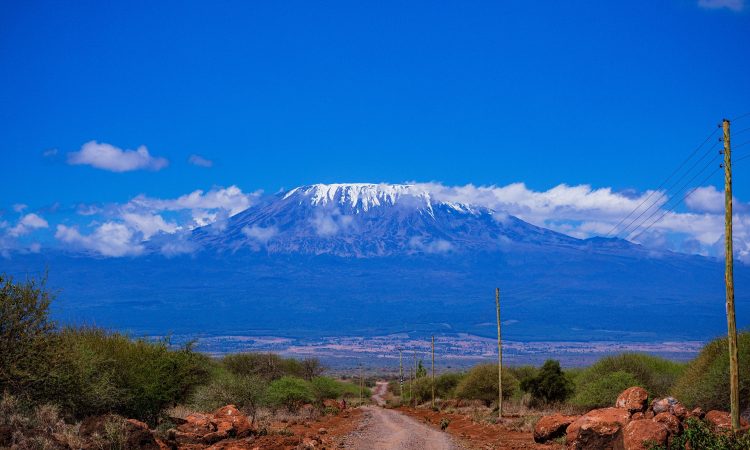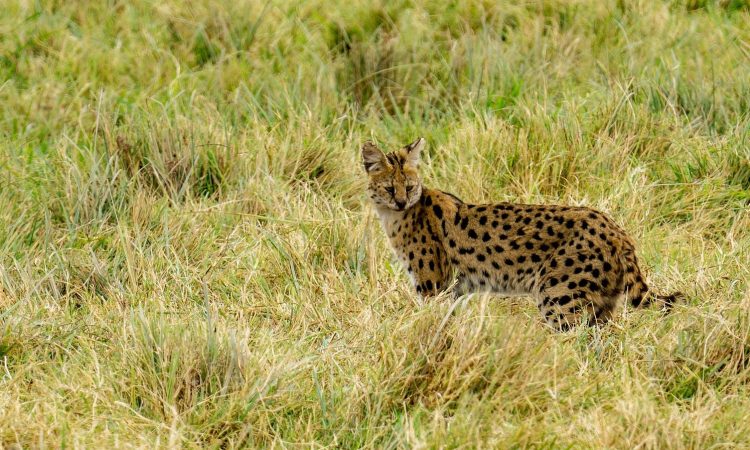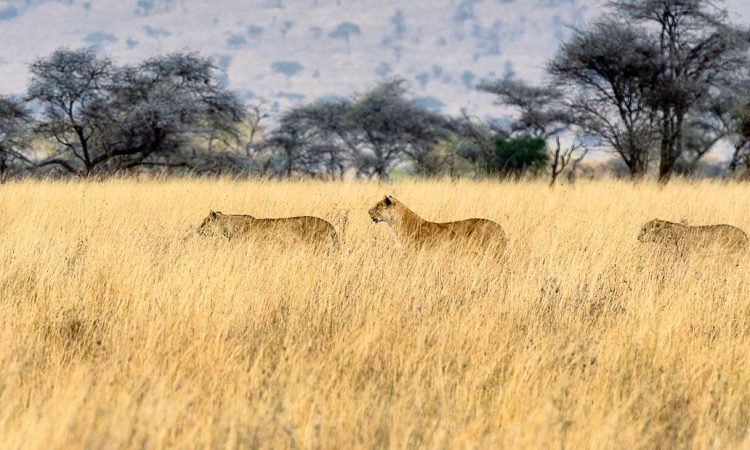Katavi National Park covers an area of 4,471 square kilometers in the Katavi region of Tanzania. It’s one of the least visited national parks in Tanzania compared to other national parks in the country.
Katavi National Park is a true untamed wilderness characterized by open grasslands, pristine lakes, seasonal rivers, forests, miombo woodlands, dense waterways, and swamps. It was first protected under German occupation in 1911. The protected area was named Rukwa Game Reserve in 1932 until 1974 when an area of 1,823 square kilometers was declared a national park. Some areas were added to Rukwa Game Reserve to make it 4,471 square kilometers. In 1998, the name of the park was officially changed to Katavi National Park.
Katavi National Park is home to one of the largest herds of buffalos on Earth. The name Katavi is derived from a “wabende” word “Katabi,” a spirit they believe to live in a huge tamarind tree within the park. A story goes that Katabi was a famous hunter long time ago and when he died, his spirit remained in the tamarind tree.
Wildlife Watching
Despite being one of the least-visited national parks in the country, Katavi National Park is a perfect destination for tourists who would love to have a thrilling wildlife experience without the crowds. The park is home to several species of wildlife, including buffalos, zebras, hippos, crocodiles, elephants, cape buffalos, African wild dogs, cheetahs, spotted hyenas, leopards, lions, wildebeests, giraffes, African wild dogs, impalas, reedbucks, olive baboons, bush babies, warthogs, duikers, elands, kudus, topis, waterbucks, serval cats, and many others. The best time for going on a game drive is in the morning and evening hours. Night game drives can also be conducted at Katavi National Park, and this usually starts at 8 pm at night with a ranger guide.
Nature Guided Walks
While at Katavi National Park, tourists can take nature guided walks with an armed ranger guide to explore the park on foot. The walks give you a chance to come close to nature other than when you’re in a car. There are several walking trails established for tourists like the Lake Katavi trail, Chorangwa trail, Sitalike trail, Lukoma trail, and Ndidi waterfall trail.
Birding
Katavi National Park is one of the top birding destinations in Tanzania with over 450 species of birds recorded. Some of the examples of birds you can see on a birding safari include Klaa’s cuckoo, red-chested cuckoo, black-bellied bustard, purple-crested turaco, African palm swift, white-browed coucal, ring-necked dove, emerald-spotted wood dove, yellow-throated sand grouse, grey-crowned crane, black-bellied bustard, white-bellied go-away bird, Ross’s turaco, yellow-billed stork, great white pelican, black-crowned night heron, cattle egret, intermediate egret, African sacred ibis, great cormorant, water thick knee, three-banded plover, long-tailed lapwing, spur-winged lapwing, greater painted snipe, African jacana, common sandpiper, whiskered tern, African harrier hawk, palm nut vulture, black-chested snake eagle, western-banded snake eagle, dark-chanting goshawk, common barn owl, pearl-spotted owlet, speckled mouse bird, southern ground hornbill, Nubian woodpecker, crested barbet, blue-cheeked bee eater, little bee eater, rufous-crowned roller, African malachite kingfisher, red-necked falcon, brown parrot, white-crested helmet shrike, orange-breasted bush shrike, grey-backed fiscal, white-necked raven, African paradise flycatcher, white-headed buffalo weaver, eastern paradise whydah, moustached grass warbler, wailing cisticola, Angolan swallow, and common bulbul, to mention a few.
Lake Katavi
Lake Katavi found in the park is one of the attractions you can visit at Katavi National Park. The lake attracts hundreds of wildlife and several water birds, especially during the dry season when other seasonal water points have dried up.
Visit Historical Sites
While at Katavi National Park, tourists can visit some historical sites like Kabora Lyonga slave trade route. With a knowledgeable guide, you will get to know some history of slave trade not only of Kabora – Lyango route but Tanzania as a whole.
Where to Stay
There are several accommodation options for visitors who come to Katavi National Park, and some of the hotels and lodges you can stay in include Fly camping, Nomad Chada Katavi, Mbali Mbali Katavi Lodge, Katuma Bush Lodge, Ikuu Public Campsite, Palahala Luxury Camp, Chada Special Campsite, Katavi Wildlife Camp, Nomad Tented Camp, Kapimbye Campsite, Kapilula Special Campsite, and Katavi Campsite, to mention a few.
When to Visit
The best time to visit Katavi National Park is during the dry seasons from July to September and December to February. During the dry seasons, most water sources in the park dry up except the Katavi river, so most wildlife gathers around the riverbanks and water holes.
The best time for birding at Katavi National Park is from November to April when migratory birds are present from North Africa and Europe. Tourists interested in photography can also visit during this time of the year.
Getting There
Tourists can reach Katavi National Park by air through Ikuu airstrip from Nyerere International Airport or Arusha Airport. Accessing Katavi National Park is hard to access by road.
Other Nearby National Parks
Tourists visiting Katavi National Park can also explore other national parks in the western circuit such as:
- Mahale Mountains National Park
- Gombe Stream National Park
- Saanane Island National Park






